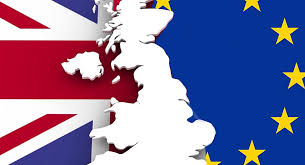
There would be "substantial costs" for the UK economy if there is a "no-deal" Brexit on World Trade Organization terms, warned the International Monetary Fund.
According to the IMF, costs would have to be paid for all of the possible Bresit scenarios but if there is no deal, the there would be "a significantly worse outcome".
It said that there are now daunting challenges to getting the deal done.
In case there is a broad Brexit deal, there would be growth of 1.5 per cent in the UK economy in both 2018 and 2019 according to the predictions of the IMF.
This was revealed in the latest annual assessment of the UK economy by the global agency.
"Those projections assume a timely deal with the EU on a broad free trade agreement and a relatively orderly Brexit process after that. Any deal will not be as good as the smooth process under which goods, services, people and capital move around between the EU and the UK without impediments and obstacles," said Christine Lagarde, the IMF's managing director while speaking at a news conference at the Treasury in London.
The Fund further said that other EU economies would be affected to a lesser degree due to a no-deal outcome.
According to Lagarde, there would be a series of consequences, because of a "disorderly" or "crash" exit of the UK from the EU which would include growth reduction, and sterling depreciation which would cause the shrinking of the EU economy.
"The larger the impediments to trade in the new relationship, the costlier it will be," she said.
"This should be fairly obvious, but it seems that sometimes it is not."
Countries have a tendency to trade most with their neighbours, she pointed out and added: "I think geography talks very loudly."
Analysts noted a significant toning down of sentiment around the effects of Brexit by the IMF when one compares what Lagarde had said last December and the latest analysis of the IMF.
The very fact that there are still talks about a possible no-deal for Brexit is of economic concern because there is just about six months left for the UK to formally exit the EU.
A long list of possible negatives was pointed out by Lagarde when she was asked if she could see any "positives" coming from Brexit.
"No," seemed to be her answer.
Describing herself as "a desperate optimist", Lagarde said that she "very much" hoped that the UK and the EU would come to a deal on Brexit.
The IMF's "clear warnings" should be heeded to by the British government, said UK Chancellor Philip Hammond.
"The IMF are clear today that no deal would be extremely costly for the UK as it would also for the EU, and that despite the contingency actions we're taking, leaving without a deal would put at risk the substantial progress the British people have made over the past 10 years in repairing our economy " he added.
(Adapted from BBC.com)
According to the IMF, costs would have to be paid for all of the possible Bresit scenarios but if there is no deal, the there would be "a significantly worse outcome".
It said that there are now daunting challenges to getting the deal done.
In case there is a broad Brexit deal, there would be growth of 1.5 per cent in the UK economy in both 2018 and 2019 according to the predictions of the IMF.
This was revealed in the latest annual assessment of the UK economy by the global agency.
"Those projections assume a timely deal with the EU on a broad free trade agreement and a relatively orderly Brexit process after that. Any deal will not be as good as the smooth process under which goods, services, people and capital move around between the EU and the UK without impediments and obstacles," said Christine Lagarde, the IMF's managing director while speaking at a news conference at the Treasury in London.
The Fund further said that other EU economies would be affected to a lesser degree due to a no-deal outcome.
According to Lagarde, there would be a series of consequences, because of a "disorderly" or "crash" exit of the UK from the EU which would include growth reduction, and sterling depreciation which would cause the shrinking of the EU economy.
"The larger the impediments to trade in the new relationship, the costlier it will be," she said.
"This should be fairly obvious, but it seems that sometimes it is not."
Countries have a tendency to trade most with their neighbours, she pointed out and added: "I think geography talks very loudly."
Analysts noted a significant toning down of sentiment around the effects of Brexit by the IMF when one compares what Lagarde had said last December and the latest analysis of the IMF.
The very fact that there are still talks about a possible no-deal for Brexit is of economic concern because there is just about six months left for the UK to formally exit the EU.
A long list of possible negatives was pointed out by Lagarde when she was asked if she could see any "positives" coming from Brexit.
"No," seemed to be her answer.
Describing herself as "a desperate optimist", Lagarde said that she "very much" hoped that the UK and the EU would come to a deal on Brexit.
The IMF's "clear warnings" should be heeded to by the British government, said UK Chancellor Philip Hammond.
"The IMF are clear today that no deal would be extremely costly for the UK as it would also for the EU, and that despite the contingency actions we're taking, leaving without a deal would put at risk the substantial progress the British people have made over the past 10 years in repairing our economy " he added.
(Adapted from BBC.com)














